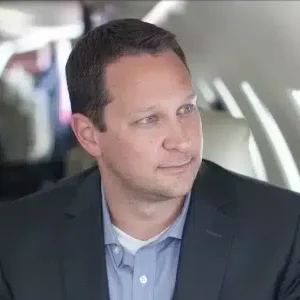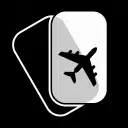Private Jet Broker Training: A Beginner’s Guide
TL;DR:
Becoming a private jet broker involves understanding both the business and aviation aspects of the role. While no specific degree is required, relevant education and training programs can be beneficial.
Main Points:
- Formal Education: Degrees in business, marketing, psychology, sociology, communications, and aviation-related fields can be valuable.
- Professional Education: Trainee and entry-level roles with established brokers provide hands-on industry experience.
- Regulations and Certifications: Understanding 14 CFR Part 295, Federal Aviation Regulations Part 135, and ARGUS certification is crucial for compliance and safety standards.
- Franchises: Opportunities like Stratos Jets’ franchise program offer comprehensive training and support.
Private jet brokers play a vital role in connecting aircraft operators and clients who want a safe, efficient, and enjoyable alternative to commercial airlines. When the private jet broker job is done well, it can be satisfying and lucrative.
The rewards of this role, from private jet broker commissions to giving clients consistently positive experiences, are only possible with knowledge, experience, key skills, and overall confidence. Knowing how to work in this highly regulated industry is vital for success.
So, what can you do to become a private jet broker? Are there degrees, certificates, courses, or other qualifications that can help you along the way? Let’s take a closer look.
The Private Jet Charter Broker Job: Professional Needs and Requirements
Formal Education
Is private jet broker training or education required for those who want to work in this field? The short answer is no. There isn’t a specific degree or training program that has been established as a universal requirement for private jet charter brokers.
That’s in part because private jet charter brokers are heavily focused on arranging travel services. They work in the sales field while having deep knowledge of aviation, making the charter process easier for both clients and air carriers.
However, that doesn’t mean there aren’t valuable degrees, certifications, and industry knowledge that support jet charter brokers.
In terms of formal education, a range of degrees, minors, and concentrations can help brokers better understand the business side of the job. These can include:
- Business
- Marketing
- Psychology
- Sociology
- Communications
Of course, understanding the aviation side of the private jet charter broker role is also crucial. Completing an aviation-focused degree, like aviation maintenance, aeronautics and aeronautical science, aerospace engineering, and similar programs can also be a major asset for brokers.
To put it simply, private jet charter brokers need to have deep knowledge of both the business and aviation sides of this role.
Professional Education and Experience
Professional education programs offer targeted opportunities for private jet broker training. The most popular air charter learning programs are trainee and entry-level roles offered by established agents and charter aircraft brokerages.
These positions provide exposure to the private aviation industry. They help aspiring brokers learn how to manage the charter flight and sales process, as well as support both clients and carriers at all times.
Our own Stratos Jets franchise program includes a best-in-class, comprehensive private jet broker training program. It can fully equip you for success in this unique and exciting field.
Knowledge of Regulations and Certifications
There aren’t required certificates or degrees for individual brokers. However, there are rules brokerages need to understand and follow. There are also programs and certificates that, when completed or earned, demonstrate a brokerage’s excellence and commitment to safety.
These include, but are not limited to:
- 14 CFR Part 295. As the National Aviation Business Administration explains, the federal Department of Transportation created specific rules governing the operation of private jet charter brokers, which took effect in 2019. This is the first set of regulations specifically for the charter air travel industry, and following them closely is crucial.
- Federal Aviation Regulations Part 135. A Part 135 certificate gives operators the legal authority to provide private jet charter services. This doesn’t apply directly to brokers but is crucial for their partner carriers.
- ARGUS certification. ARGUS certified charter brokers have gone through a detailed and exacting auditing process. That process confirms a variety of key qualities, from following ethical and legal business practices to maintaining especially high safety standards in their partner carriers.
Private Jet Charter Franchises
Stratos Jets offers brokers the opportunity to tap into our resources, like our FMS booking platform, back-office support, comprehensive training, and ARGUS certification, as a Stratos Jets franchise. Start your own private jet charter franchise!
Are you ready to book your Denver and New York charter flight yet?
Our friendly, expert air charter agents are here to answer questions or start your quote today. Don`t wait, call now and we'll get you on your way to your destination!
Call 888-593-9066











